
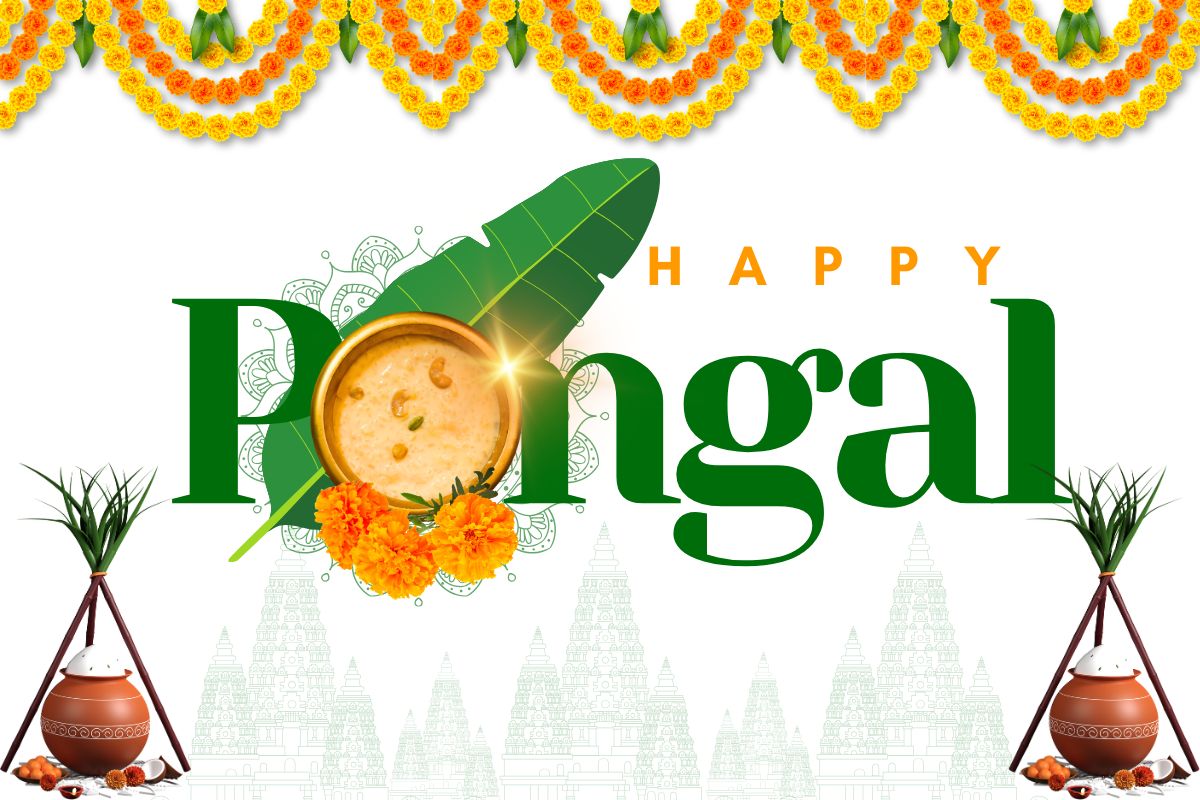

Pongal is a lively and important harvest festival that is mostly enjoyed by Tamil people in India and around the world. Pongal takes place over four days in the Tamil month of Thai, which usually starts on January 14th. Each day is marked by different practices and traditions that honor nature, farming, and family bonds.
Table of Contents
TogglePongal is a festival that comes from the history and culture of Tamil. Someone wrote about the festival in the Viraraghava temple. It is thought to be from the Chola king Kulottunga I (1070–1122 CE). There is a story about how land was given to the temple so that it could hold its Pongal celebrations every year.
Manikkavacakar wrote it in the 9th century and is a Shaiva Bhakti work. It talks about the event in great detail. Pongal is a Hindu festival that marks the end of the winter solstice and the beginning of Uttarayana, the sun’s six-month journey northward. The trip starts when the sun moves into Capricorn. A lot of luck and plenty are thought to come with this time of year.
Bhogi Pongal: Today is Bhogi Pongal, a day to celebrate Lord Indra, the god of rain, and the start of the festival. On this day, people get rid of old things and clean up their houses. This is thought to help cast out evil spirits. People light bonfires to burn away their trash, which represents a new beginning. To bring good luck and wealth into homes, they are cleaned, painted, and decorated with patterns made from rice flour called “kolams.”
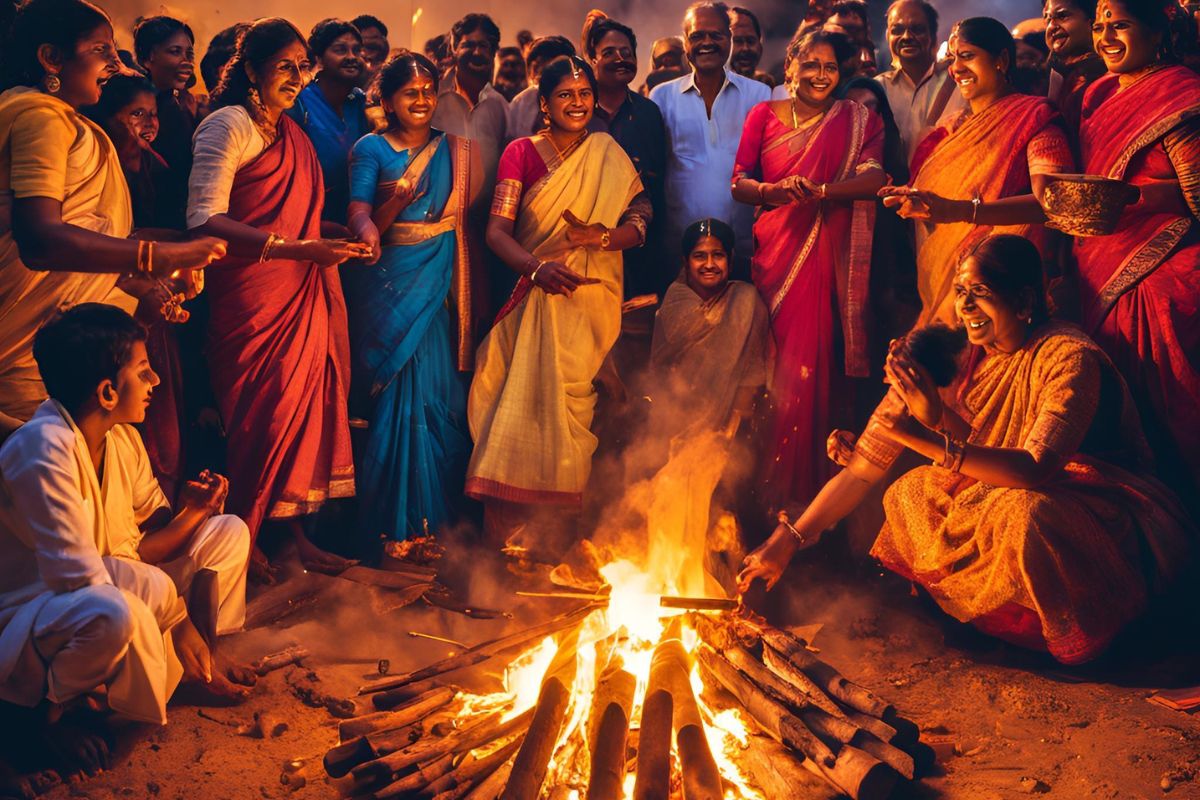
Surya Pongal: The second day is called Surya Pongal and it is made to honor Surya, the Sun God. Families get together to make the traditional food “Pongal,” which is a sweet mix of newly harvested rice, milk, and jaggery cooked in brand-new clay pots. As the pot boils over, it represents plenty and success. The chant “Pongalo Pongal!” is often sung during the ceremony to show happiness and thanks. The Pongal dish is then given to Surya as a thank-you gift for a good crop.
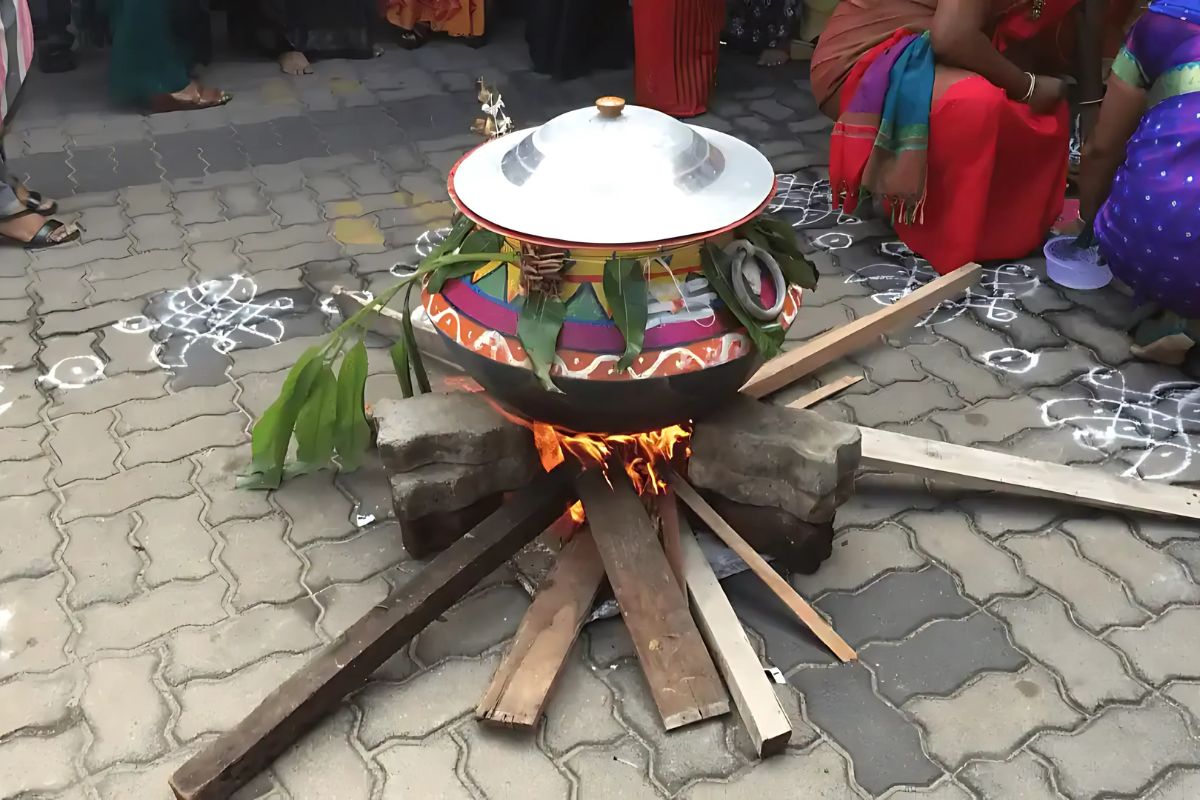
Mattu Pongal: On the third day, Mattu Pongal, honors cows because they play an important role in farming. Bulls and cows are bathed their horns are painted and ornamented with flowers. Certain locations host ancient Tamil sports such as “Jallikattu,” in which participants attempt to tame a bull to exhibit their bravery and cultural legacy.
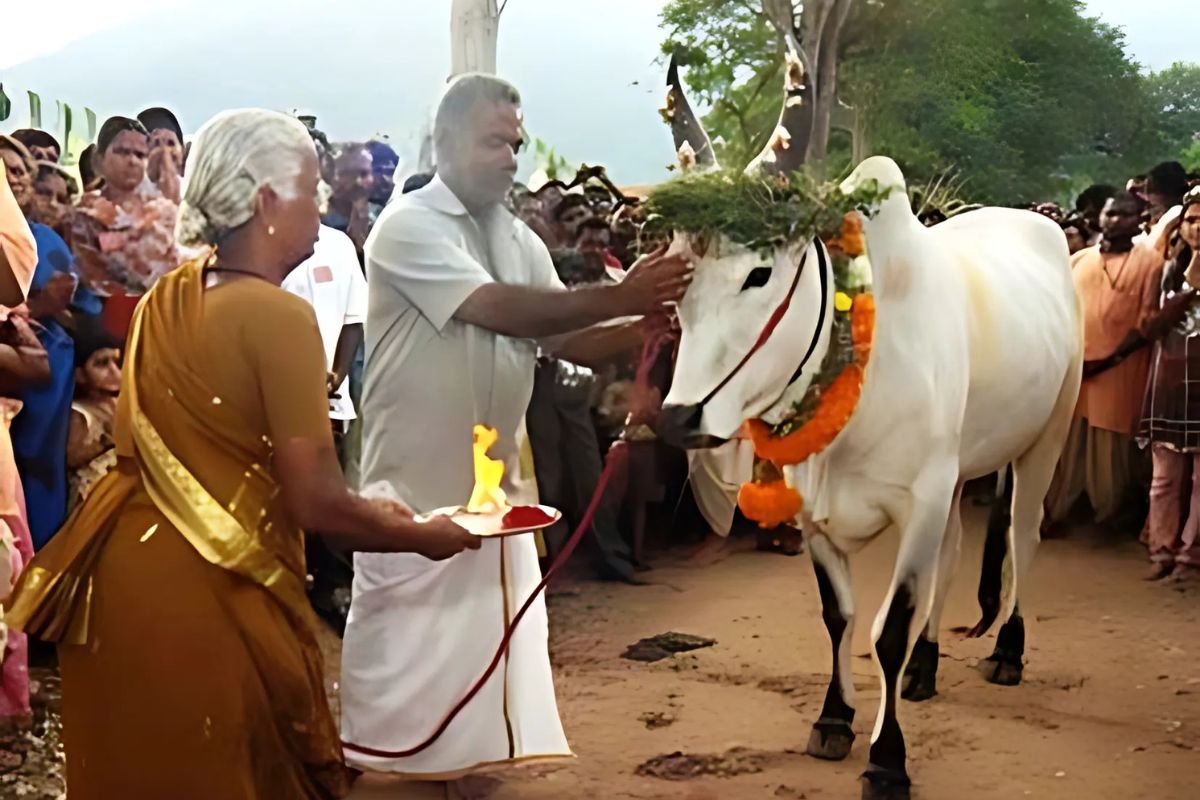
Kanum Pongal: The celebration finishes with Kanum Pongal, a day for friendly interaction and getting to know one another. People gather to dine, hang around with friends and relatives, and exchange gifts. Planned cultural events aimed to unite people and enable them to meet new friends featuring traditional dances, musical performances, and other activities.
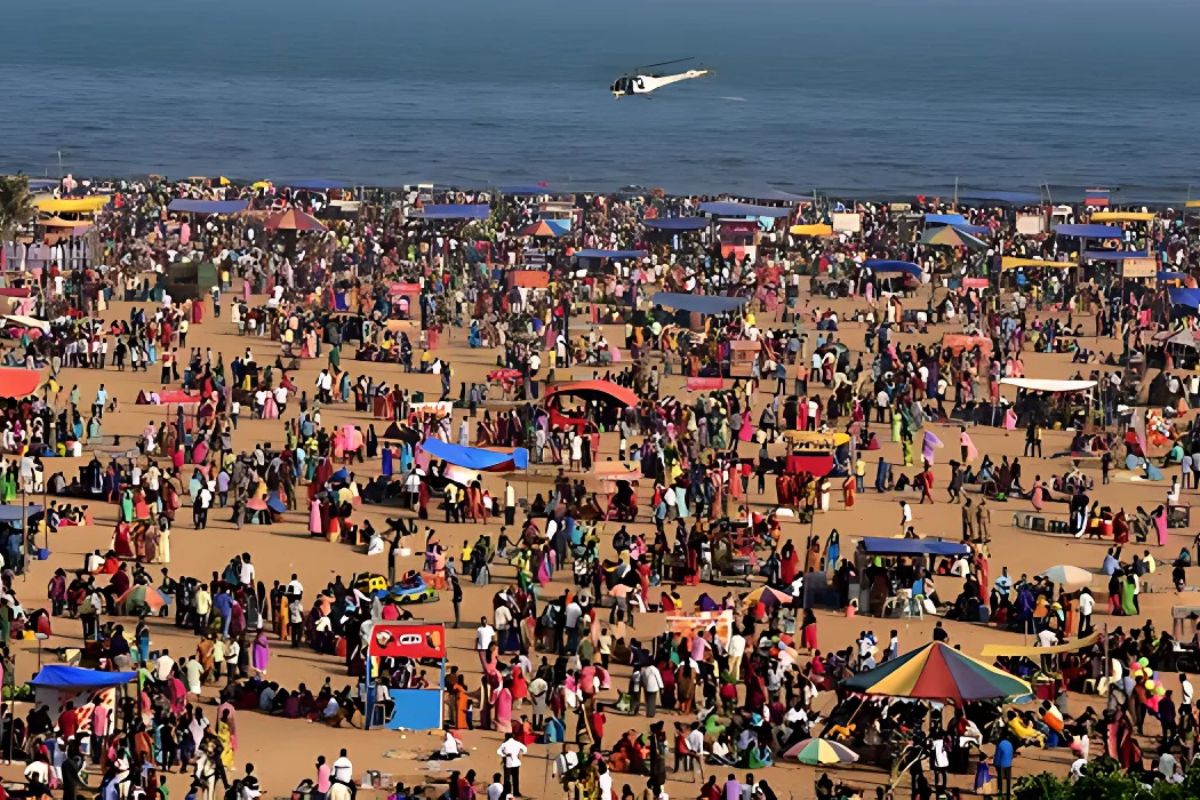
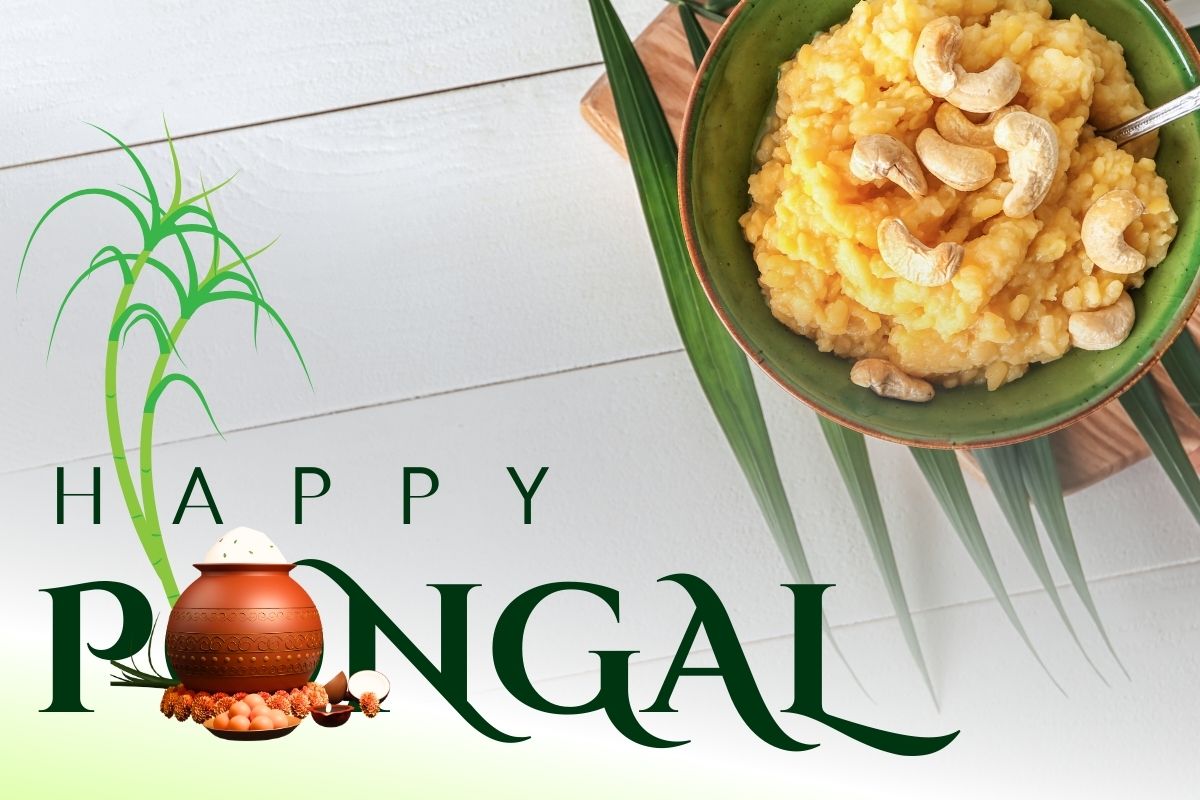
In 2025, Pongal still makes people very delighted, but some new events are happening. The towns of Tamil Nadu are seeing people return to old habits. Younger people are now performing rituals, which helps to keep the traditional past alive. In rural areas, old traditions are still kept alive, and neighborhood events and celebrations bring people together.
Pongal is celebrated at the same time as other harvest festivals in Karnataka and Andhra Pradesh. In Karnataka, the festival is called “Ellu,” and in Andhra Pradesh and Telangana, it’s called “Bhogi.” Indian culture is very diverse, as shown by the fact that people in these places enjoy the festival in their unique ways, with traditional music, dance, and feasts.
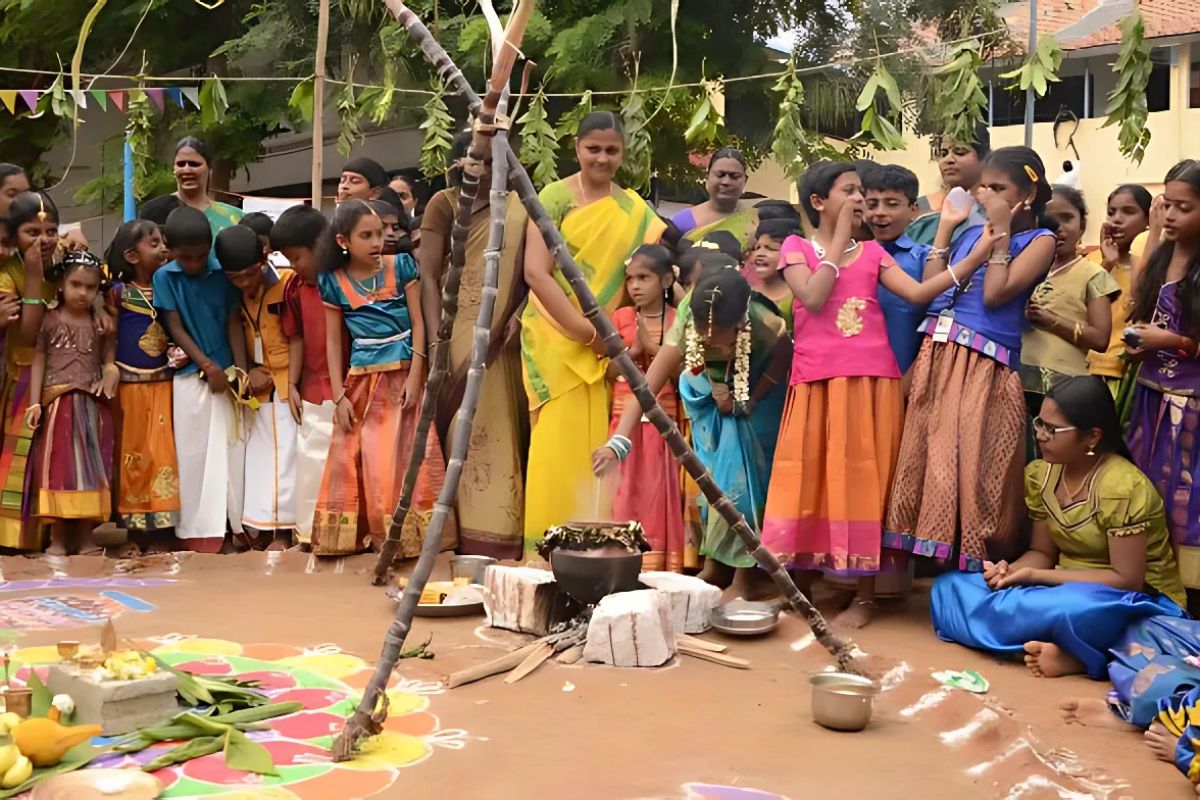
It’s also a very happy time for Tamil people who don’t live in Sri Lanka, Malaysia, Singapore, or the US. Expatriates can connect with their roots and share their history with people around the world through community events, cultural programs, and traditional rituals.
In the past few years, people have been trying to make Pongal celebrations better for the earth. Because people want to be good to the earth, there aren’t as many traditional bonfires during Bhogi Pongal. A lot of people instead choose to take part in rituals that have meaning. More and more people are making healthy food and decorating with materials that are good for the environment. People are starting to realize they have to treat the ground.
Pongal is a celebration of life, gratitude, and group participation as much as a festival for agricultural harvesting. The several customs and behaviors the Tamil people engage in reveal their great respect for their own culture. As we enter 2025 Pongal is continuously evolving. It combines traditional and modern elements to ensure that the primary concepts of the celebration survive and are significant for the next generations.

